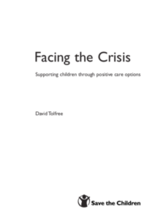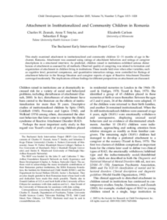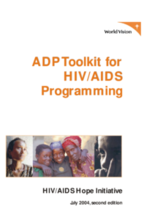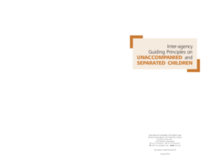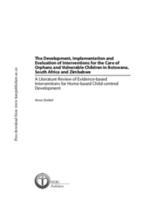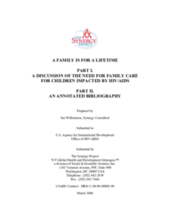Displaying 281 - 290 of 312
A paper with guidelines for keeping children with families and providing proper care and protection for them. It provides examples and plans for those interested in planning care for separated children.
This study examined attachment in institutionalized and community children 12 – 31 months of age in Bucharest, Romania.
Examines the long-term impacts of the Child Social Care Project in Rakai District, Uganda. Outlines good practices for OVC support, as well as recommendations for governments and donors.
Toolkit for the founding and expansion of HIV/AIDS responses in development programs. Includes hands-on tools and support documentation.
Discusses the interplay between informal and formal safety net mechanisms in supporting orphans and children made vulnerable by HIV/AIDS. Includes recommendations for strengthening traditional family and community safety nets weakened by the epidemic.
A comprehensive framework to ensure that the rights and needs of separated children are effectively addressed. Guidelines aim to promote and support preparedness, coordination and good practice based on lessons learned. Addresses all aspects of an emergency from preventing separations, to family tracing and reunification, through to long-term solutions.
A review of interventions for orphaned and vulnerable children that focuses on community-supported, home-based care examples. Highlights several models and programs, such as the COPE approach and Village AIDS Committees. Advocates the need for more research-based interventions and evaluation.
Reviews 80 of the most significant and relevant documents focusing on family care for children affected by HIV/AIDS. Focuses on common areas of concern, research gaps, and ways to address identified needs.
This study measures the average annual economic costs per child for two World Bank-supervised interventions in Africa.
This paper hopes to contribute to a sorely under-documented field of how to reintegrate institutionalized children back into the community in a post-conflict environment.

